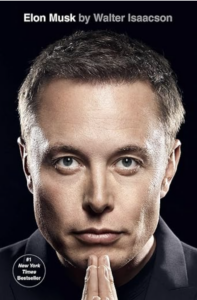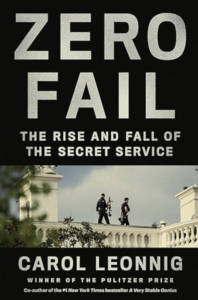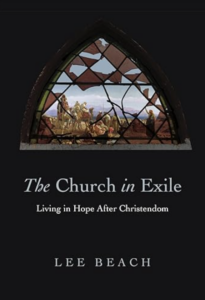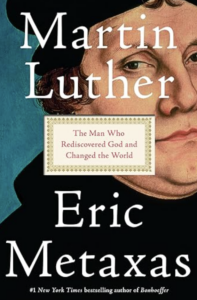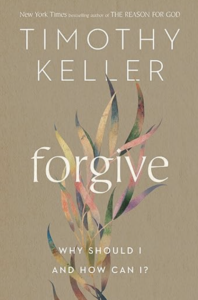Christmas isn’t quite here yet, but if you’re anything like me, you’re already starting to think about your goals for 2025. And there aren’t many better goals—for book nerds like me, anyway—than reading goals. So I’m here to help you populate your 2025 reading list.
Below are 15 of the books that impacted me most this year. (I always want to make it a Top 10, but there are just too many good ones. Think of this as “Top 10 and Friends.”)
And, as always, a caveat: I don’t agree 100 percent with all of these books. But each one of them was well worth my time—and, I’d wager, yours.
Happy reading!
Elon Musk, Walter Isaacson
This is one of those biographies that made me stare with wonder and amazement at the man—and also shake my head in bewilderment. Like him or hate him, Elon Musk is a true genius and approaches questions differently than probably anyone you’ll ever meet. Isaacson’s biography is, unsurprisingly, excellently written. By and large, I found it very enjoyable—even though, at times, it was deeply concerning.
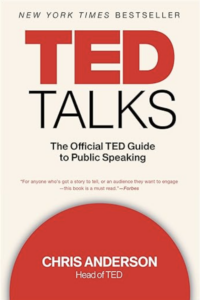 TED Talks: The Official TED Guide to Public Speaking, Chris Anderson
TED Talks: The Official TED Guide to Public Speaking, Chris Anderson
I try to read a book like this every year or so. Anderson is now the director of TED Talks, and he gives excellent coaching advice for those seeking to present compelling talks. It’s obviously not a book written to preachers, but much of what he says about the science of communication I have found to be really helpful in my preaching. Of course, if I had to pick out the most important elements of good preaching, I would choose theology, the consistency of spiritual life, and fullness of the Spirit. But after that, it really is worth devoting time to mastering the craft of communication itself. Many preachers, though they may be rigorous in their theology and deeply godly people, don’t quite know how to craft a talk that grabs people at the beginning and holds on to them until the end. Anderson can help there. Enjoyable and helpful.
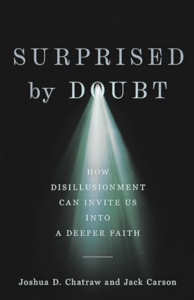 Surprised by Doubt: How Disillusionment Can Invite Us Into a Deeper Faith, Dr. Joshua Chatraw and Jack Carson
Surprised by Doubt: How Disillusionment Can Invite Us Into a Deeper Faith, Dr. Joshua Chatraw and Jack Carson
This is one of the many books that has come out on the subject of deconstruction, and I found this to be one of the more helpful ones. Dr. Chatraw and Jack Carson deal with a lot of the primary questions that people raise in deconstruction, and Dr. Chatraw excellently shows how a lot of what goes under the heading of “progressive insight” is really nothing but ancient unbelief. At the same time, he approaches sympathetically those who are deconstructing and shows how much of what gives rise to their problems with Christianity comes from legitimate problems within the church. It was helpful, not only to equip me with better answers to those walking through this, but also to consider how I and The Summit Church might be contributing to the problem of deconstruction. Deconstruction is rooted in unbelief, but if the church is inconsistent, we can unwittingly give rise to some of these questions.
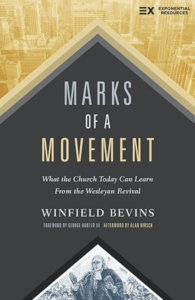 Marks of a Movement: What the Church Today Can Learn from the Wesleyan Revival, Winfield Bevins
Marks of a Movement: What the Church Today Can Learn from the Wesleyan Revival, Winfield Bevins
This is a fascinating analysis of the OG multiplying, disciple-making-disciple, churches-planting-churches movement. I learned so much. My soul is so refreshed just going back through the passion that drove the Great Awakening evangelists and the lessons they learned along the way. This helpful book narrows in on John Wesley’s life and focuses on the principles of multiplication.
Zero Fail: The Rise and Fall of the Secret Service, Carol Leonnig
For those of you that are into White House and government-related personnel drama, this is a fascinating perusal through the history of the Secret Service. If you’re curious about some of the backstory and drama behind even what we saw in the attempted Trump assassination, you’ll find this book fascinating. It will also make you wonder how some of our past presidents are not in jail for the ways they endangered the country, involving the Secret Service.
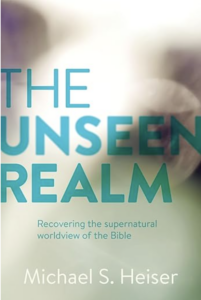 The Unseen Realm: Recovering the Supernatural Worldview of the Bible, Dr. Michael Heiser
The Unseen Realm: Recovering the Supernatural Worldview of the Bible, Dr. Michael Heiser
This is a book I will be chewing on and meditating on for the next couple of decades. It is one of those paradigm-shifting books after which you can never really read the Bible exactly the same. Dr. Heiser shows us that, from the beginning, there has been a cosmic battle behind the scenes of almost every stage in redemptive history. He avoids the supernaturalist excesses that find demons behind every rock or try to name territorial spirits—though he shows you how spiritual forces are one of the motifs at work in much of Paul’s letters, the Psalms, the prophets, and especially in Genesis. Plus, he’s got some of the most interesting stuff I’ve ever read about the Nephilim. I’m certainly not ready to sign on to everything in here, but this book was deeply challenging.
The Church in Exile: Living in Hope After Christendom, Lee Beach
This is a little bit of a nerdy book, but I found it fascinating, primarily because of some research I’ve been doing for my upcoming book (the functional title right now is Living Quietly, Testifying Loudly). Beach does a deep-dive analysis of Daniel, Esther, and Jonah, showing how they struggled to figure out what faithfulness looked like in a place where pagan Gentiles were in charge. I don’t agree with everything in the book, but it was helpful to reflect on what faithfulness looks like in the secular marketplace and even in hostile government settings that we may increasingly find more common today.
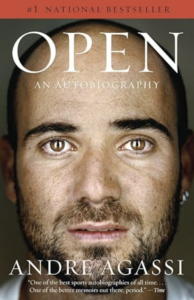 Open: An Autobiography, Andre Agassi
Open: An Autobiography, Andre Agassi
Begrudgingly, I have to admit that this is one of the more fascinating memoirs that I have read recently. Agassi is surprisingly reflective, and this memoir illuminates not only his own life, but also the dilemmas and curses presented by success. If you like sports biographies, this is one of the best ones I’ve ever read. I actually don’t pick them up that often, and even I enjoyed this one.
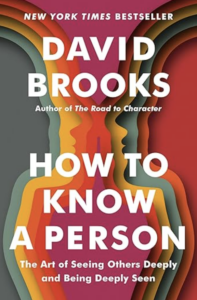 How to Know a Person: The Art of Seeing Others Deeply and Being Deeply Seen, David Brooks
How to Know a Person: The Art of Seeing Others Deeply and Being Deeply Seen, David Brooks
I simply cannot say enough about this book. I read it, finished it, and did something that I almost never do: I read it through a second time. It’s not written as an overtly Christian book, though Brooks is, in fact, a Christian. Brooks displays incredible insight into human nature: how people think, how to know a person, even how to love a person. This was so fascinating to me that there’s hardly any interaction that I have—family, friend, or otherwise—that hasn’t been influenced by this book. Cannot recommend it highly enough.
Martin Luther: The Man Who Rediscovered God and Changed the World, Eric Metaxas
I read this in preparation for our church tour with Signature Tours to Germany. There are few things in history that inspire me as much as Martin Luther’s rediscovery of the gospel and his courage in standing up against the established church at the time. I love every moment of Luther’s story—up until the very end when he gets really weird. It makes me think a lot about aging and the dangers of letting idols grow undetected in your life, but the main thing I love about Luther’s story is his clarity around the gospel and how he contended for it in his generation. The one thing Satan wants to do more than anything else is obscure the gospel, so each generation must contend again for it.
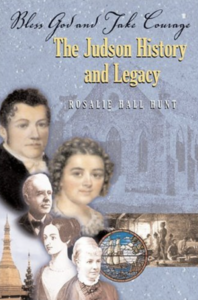 Bless God and Take Courage: The Judson History and Legacy, Rosalie Hunt
Bless God and Take Courage: The Judson History and Legacy, Rosalie Hunt
This is one of the best books I have ever read. I think it’s the best of the Adoniram Judson biographies. The president of Judson College told me that, and I didn’t believe him. But then I read it, and he is absolutely right. Unfortunately, it has a strange title and a really unappealing cover, and the picture of the author makes you think it was written by the lady in the choir who sings alto on the far right of the front row. That aside, Adoniram Judson’s life is amazing, and Rosalie Hunt’s writing is equally compelling. It stirred me deep in my soul. If you can only read one book this year, read this one.
Forgive: Why Should I and How Can I?, Tim Keller
As far as I know, this is the last book that Tim Keller wrote before he died. What a fitting magnum opus for him. Unpacking the greatest aspect of the gospel and the impact it makes on our lives: This is Tim Keller in a nutshell. He stands in awe of the glory of the gospel and then shows its implications for how we think about ourselves and about people. Keller’s knowledge of cultural challenges, as well as his understanding of the psychology of the human spirit, is truly amazing. This book will show up time and time and time again as I preach.
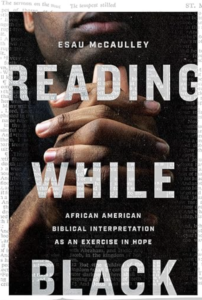 Reading While Black: African American Biblical Interpretation as an Exercise in Hope, Esau McCaulley
Reading While Black: African American Biblical Interpretation as an Exercise in Hope, Esau McCaulley
This is a book that I find helpful in its interpretation, not just of the Black-White tensions in America, but of a general blind spot in how we approach biblical interpretation and cultural questions.
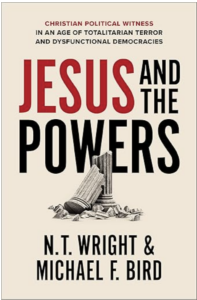 Jesus and the Powers: Christian Political Witness in an Age of Totalitarian Terror and Dysfunctional Democracies, N.T. Wright and Michael Bird
Jesus and the Powers: Christian Political Witness in an Age of Totalitarian Terror and Dysfunctional Democracies, N.T. Wright and Michael Bird
I don’t always agree with N. T. Wright, but as the old saying goes, when N. T. Wright is right, he is right. This was a helpful analysis that I read, again, in preparation for the book that I am now writing about the proper posture of Christians toward the secular, Babylon-esque society that we find ourselves in. Very provocative and a lot in here worthy of consideration.
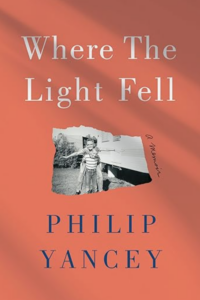 Where the Light Fell: A Memoir, Philip Yancey
Where the Light Fell: A Memoir, Philip Yancey
I loved this memoir. I didn’t want to love it, but I did. There’s much about how Philip Yancey sees his life and his future that I don’t like. He tends to not give people the benefit of the doubt or be charitable. I hope whoever else interprets his life is more charitable than he is toward some of his upbringing in the Independent Baptist world. That’s a world that he and I both experienced, though in apparently very different ways. For me, Independent Baptists taught me to love Jesus, to trust the Bible, and to give myself to evangelism. I count all of that as a major win. They had problems, of course, but they loved me, they loved Jesus, and I was taken care of. Yancey’s experience, it seems, was different—as this book shows—and I want to be sympathetic to that. He points out some important truths about the dysfunction of his Independent Baptist past, the grace of God in it all, and a positive vision for the future. I have a different perspective on my forebears and ancestors, but I found much in this book to appreciate.
